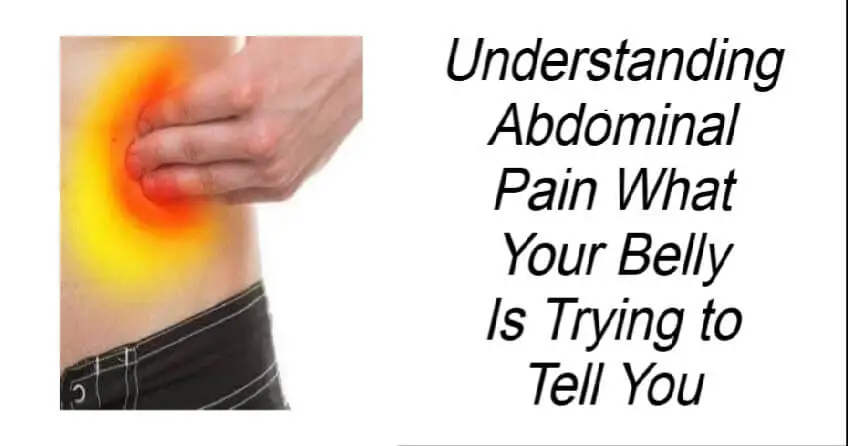Understanding Abdominal Pain What Your Belly Is Trying to Tell You
Abdominal pain — that all-too-familiar bellyache — is something most of us have experienced at some point. While it’s often harmless and goes away on its own, it can also be a signal that something more serious is going on inside.
Let’s break down what abdominal pain really means, what causes it on different sides of your body, and when to seek medical help.
What Is Abdominal Pain?
Abdominal pain refers to any discomfort in the area between your chest and pelvis. It can be sharp, dull, crampy, or come in waves. Often, it’s caused by something simple, like indigestion or gas. But in some cases, it could indicate a condition that needs medical attention.
Pain on the Left Side of Your Abdomen
Lower Left Side
The most common cause of lower left abdominal pain is diverticulitis — inflammation of small pouches (diverticula) in your colon. It’s a common condition, especially as you age. Another possible cause is irritable bowel syndrome (IBS), which can cause chronic pain and changes in bowel habits.
Upper Left Side
Pain in the upper left part of your abdomen could stem from several conditions, including:
- Pancreatitis (inflammation of the pancreas)
- Pancreatic cancer
- Enlarged spleen (splenomegaly)
- Gastritis (inflamed stomach lining)
- Stomach ulcers
- Stomach or bile reflux
- Stomach cancer
- Kidney infection or stones
Pain here may also come from your chest and mimic abdominal issues. Possible causes include:
- Heartburn or acid reflux
- Angina or heart attack
- Pericarditis (inflammation around the heart)
- Pneumonia or pleurisy
- Pulmonary embolism (blood clot in the lungs)
Pain on the Right Side of Your Abdomen
Lower Right Side
Pain here is often linked to the appendix — appendicitis is a medical emergency that usually requires surgery.
Upper Right Side
This region houses several major organs, so pain could point to conditions like:
- Hepatitis (alcoholic, viral, toxic, or autoimmune)
- Gallstones or cholecystitis (gallbladder inflammation)
- Liver disease or liver cancer
- Gallbladder cancer
- Kidney infection or stones
- Duodenal ulcers
- Bowel obstruction
When to Call the Doctor
Not all abdominal pain is an emergency, but some signs mean you should see a doctor — or even call 911.
Call Your Doctor If You Have:
- Severe or persistent pain
- A belly that’s tender to the touch
- Pain that lasts more than a few hours
- Vomiting for more than 2 days
- Dehydration symptoms (very thirsty, dark urine, not urinating often)
- Painful or frequent urination
- No bowel movement, especially if vomiting too
Call 911 or Seek Emergency Help If You:
- Have chest pain or shortness of breath
- Recently injured your abdomen
- Vomit blood or have bloody/black stools
- Are pregnant and in pain
- Have swelling in your belly
- Have yellowing of your skin (jaundice)
- Are losing weight without explanation
Final Thoughts
Abdominal pain can be caused by something as simple as a heavy meal or as serious as a medical emergency. Always pay attention to your symptoms — your body is telling you something for a reason. When in doubt, don’t hesitate to reach out to a healthcare professional.
You’ve just read, What Your Belly Is Trying to Tell You . Why not read Manager Had To Hire A New Employee.

